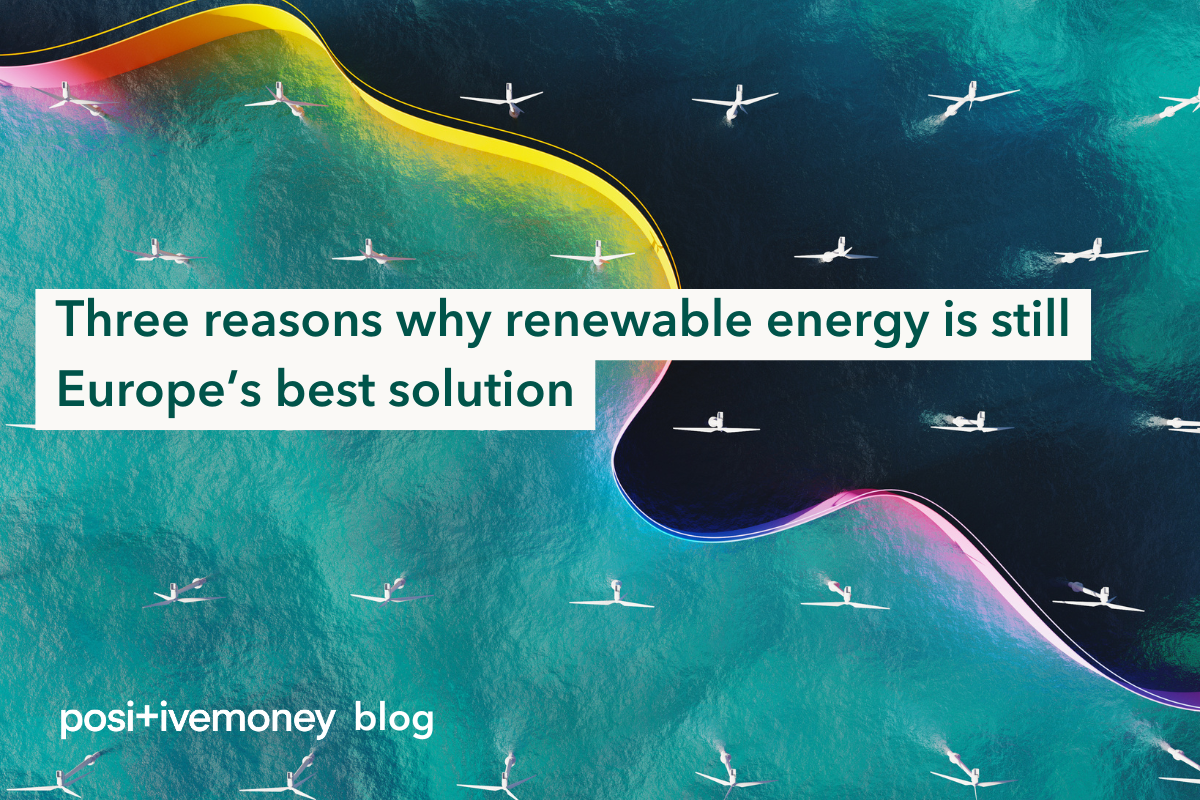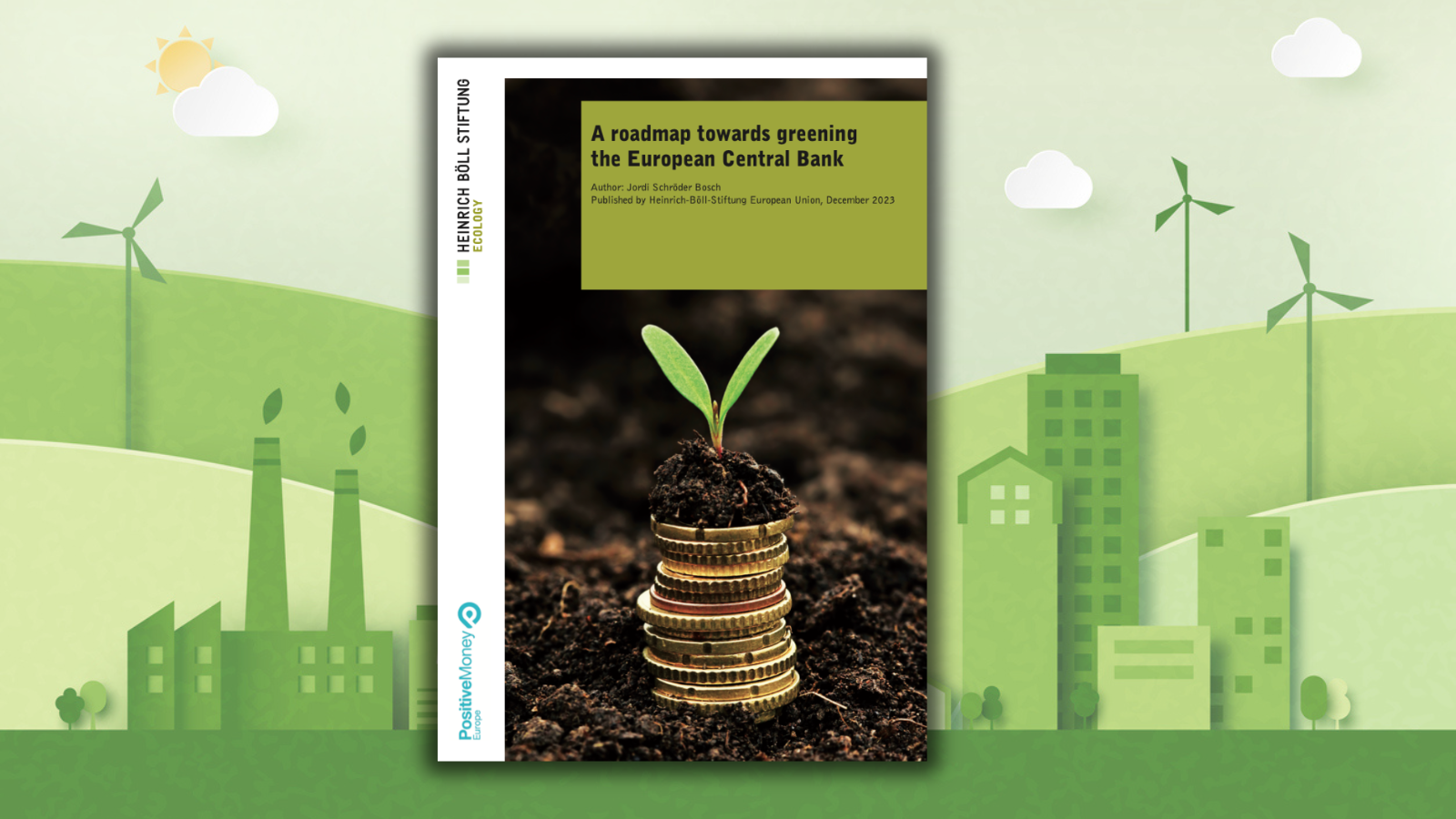
Green FinanceEU
9 February 2026
Positive Money Europe and the Heinrich Böll Foundation are thrilled to announce the publication of a new policy report that explores the role of the European Central Bank (ECB) in mitigating climate change and environmental degradation. This report underscores the urgency of addressing these issues, which stand as some of the most pressing challenges we are facing today.
Climate change holds significant consequences for the operations of the ECB. The volatile nature of fossil fuel prices poses a direct threat to the ECB’s core mandate of achieving price stability. Rising global temperatures and the increasing frequency and intensity of extreme weather events contribute to inflationary pressures, which are expected to amplify as climate change intensifies.
Since the adoption of its climate action roadmap in July 2021, the ECB has taken important steps to incorporate climate change considerations into its monetary policy operations. However, the ECB’s policy reforms thus far fall short of the magnitude of the challenge that climate change poses.
To fulfil its legal obligations, the report suggests that the ECB must embrace a proactive environmental approach. This entails shifting towards evaluating the environmental footprint posed by the ECB’s balance sheet. By adopting this more proactive stance, the ECB can implement climate mitigation measures aimed at accelerating the green transition, thereby maintaining future price stability, bolstering financial system resilience and fulfilling its secondary mandate.
ECB President Christine Lagarde has said that in 2024, the ECB will introduce new measures to further align its operations with the Paris Agreement. Additionally, the ECB is scheduled to undergo a strategy review in 2025. These upcoming milestones are opportunities to advocate for the policy recommendations set out in this report.
